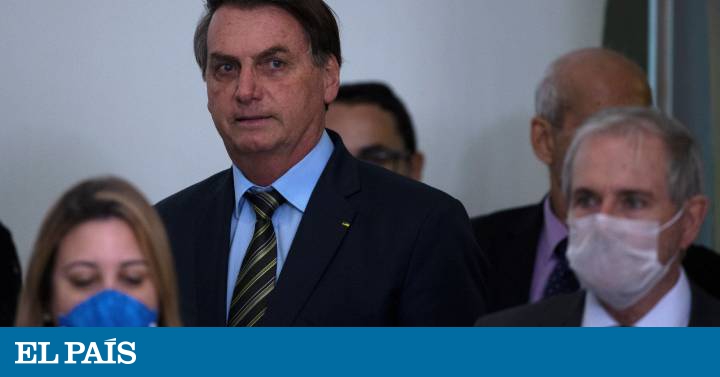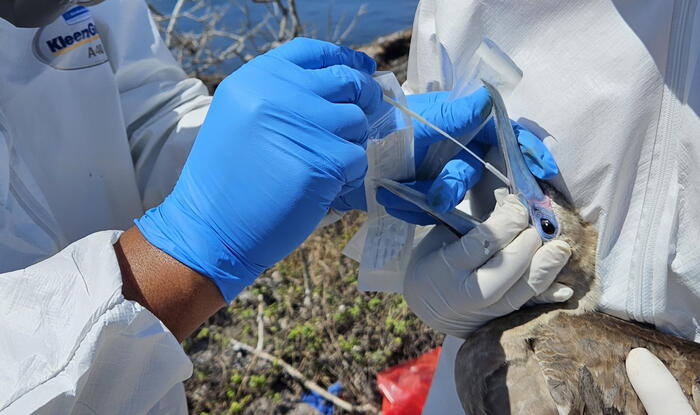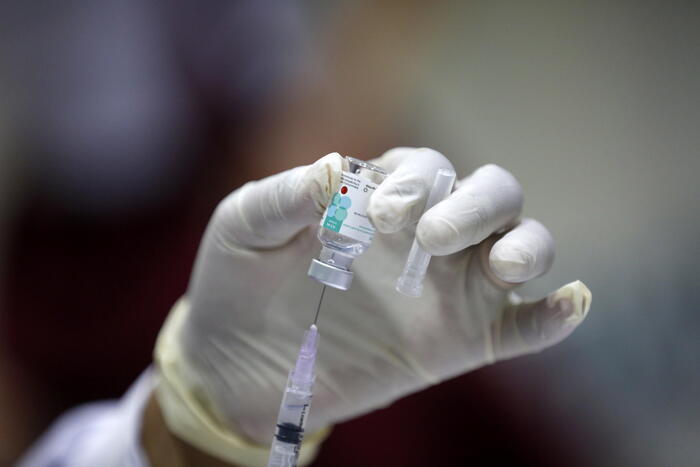At first it was the virus. Coronavirus. In less than two months after the first death, recorded in China on January 9, it crossed the world aboard our bodies that fly in planes. It became ubiquitous on the planet, but as invisible as certain gods to human eyes. Today, 1.7 billion people, about a fifth of the world's population, are isolated. Schools, restaurants, cinemas and even shopping malls have closed their doors, the borders of countries and continents have been closed, the planes have been emptied, the manic presidents have finally been recognized as manic presidents, the neoliberals have been seen crying out: "¿ Where's the State? Where is the State? ”, Ardent defenders of health insurance have shared campaigns to strengthen public health, landowners have demanded answers from science. Through the windows of Facebook, Twitter, WhatsApp and Instagram, people decree: the world will never be the same.
It will not be. But perhaps it will still be quite similar. In addition to our survival, what is in dispute right now is what world we will live in and what humans we will be after the pandemic. These responses will depend on how we experience the pandemic. The aftermath - the post-world war of our time - will depend on how we choose to live the war. It is not true that in war you cannot choose. The truth is that, in war, choosing is much more difficult and the resulting losses are much greater than in normal times.
In war, we have two personal paths that determine the collective: to be better than we are or to be worse than we are. This is the permanent war that each one waged behind closed doors today. Radical moments expose radical nudity. Isolated, we also deal with it. What the mirror can show is not the flabby belly. That no longer matters, we have no where or who to display our chocolate bars. The difficult thing is to see yourself face to face with a flaccid character, a desire without muscle, a desire without tone that was previously masked by the spiral of the days. The difficult thing is that they call you to be and be afraid of being. Because that is what moments like this do: they call us to be.
In more normal times, we can pretend we don't hear the call to be. We cover that voice with automatisms, life is summed up to consume life consuming the planet. Consumers are not, as they consume being. And now, when you can no longer consume, because there may soon be nothing to consume or who can produce what to consume, how do you learn to separate verbs? How does a consumer become a being?
If we use the word war, we must carefully observe the enemy. Is it the virus, this creature that looks like a furry microscopic pellet, almost cute? Is it the virus, that organism that only follows the imperative to reproduce? I think not. The virus has no conscience, it has no morals, it has no choice. We will have to overcome it in our bodies, neutralize it to restart what we call the other world that is to come. However, everything indicates that other pandemics, other mutations will occur. The way we live on this planet has made us victims of pandemics. The enemy is us. Not exactly us, but capitalism that subjects us to a deadly way of life. And, if it subdues us, it is because, with more or less resistance, we accept it. Escaping the virus this time may not save us from the next. We must change the way of living. Our society has to become another.
The dead end that the pandemic imposes on us is not new. It is the same one that the climate emergency got us into, years, decades ago. Scientists - and more recently adolescents - repeat and shout that the way we live must be urgently changed or we will be condemned to the disappearance of part of the population. And whoever survives will be doomed to a much worse existence on a hostile planet.
All data shows that the Earth, which is still round, overheats to levels incompatible with the life of many species. This overheating will radically — worse — change our habitat. All the scientific information indicates that it is necessary to stop devouring the planet, that consumption patterns must be radically changed, that the idea of infinite growth is a logical impossibility in a finite world. It is a proven fact that humans, by emitting carbon since the industrial revolution, cutting trees, burning coal and then oil, have become a force of destruction capable of altering the planet's climate.
Starting in the second half of 2018, teens around the world stopped going to school on Fridays to yell on the streets that adults are stealing their future. They say: stop consuming, stay on the ground, our planet can no longer support so many carbon emissions. They also literally say, "You don't give a shit about our future." Greta Thumberg, the young Swedish activist, repeatedly warned: "Our house is on fire." Wake up
Everything is written, said, repeated, documented. No one can say that they did not know. Well, Bolsonaro, the maniac who rules Brazil, can always do it, because he says and denies himself every two by three. But seriously, who can stand talking about this insane man, who criminally increases the risk of death for Brazilians, unless it is to shout "Get out!"? Let's isolate this jerk, let Bolsonaro keep looking for where he has his ears and learning to put on the mask without covering his eyes.
The effect of the pandemic is the concentrated, acute effect of what the climate crisis produces at a much slower rate. It is as if the virus shows us what we will soon experience. Depending on the levels of global overheating, we will reach a stage of climate transformation and, consequently, of the planet, for which there is no going back, there is no vaccine, there is no antidote. The planet will be another.
This is why scientists, indigenous intellectuals and climate activists have been yelling at a majority who plays Swedish - so as not to have to give up their comfort by changing old habits - that we have to radically change consumption patterns, that we must press radically to the rulers to create immediate public policies, that it is necessary to radically combat the large corporations that destroy the planet. But, since the climate crisis is slow, it has always been possible to pretend that it did not exist, reaching the paroxysm of choosing denialists such as Jair Bolsonaro, Donald Trump and all the known panda of destroyers in the world.
The virus does not allow to pretend. Possibly it jumped from a bat, a species whose habitat we also destroy, to lodge in the human organism. He did nothing more than follow his virus life. Suddenly, men and women around the world who pretended to have no body or limits, overflowing on the internet, had to deal with their own flesh and their own contours. There is no way to escape the body anymore. There is no way to stay sprawled at the navel anymore.
The entire illusion that the world is controlled by humans has been dissolved in record time. And humanity has finally discovered that there is a world beyond itself, populated by others that can even destroy our species. Others we can't even see. In our dominant species fury, we extinguish so many others and so many life forms, we lock wonderful animals in cages, we create concentration camps for oxen, pigs and chickens, we poison fish with mercury just because we like gold, we promote daily burnt offerings to feed ourselves , we rape cows with gadgets because we want to eat their tender babies in refined foods and we want to steal their milk day after day, we uproot the jungle to make soy fields to feed the enslaved animals. We can do anything.
And then the virus arrives, which is not interested in giving us any message, it only deals with its own affairs, and it shows us: you humans are not alone on this planet nor do you have the control that you think you have. And those who scoffed at climate and earth scientists, who called the climate crisis a "Marxist plot," now want to know how science can save them from the hairy ball. They come to invent that covid-19 is a "flu", "a fantasy", "a hysteria". People play with everything and are ready to believe any nonsense, even that the Earth is flat, as long as they are guaranteed to be able to follow their zombie path. But people do not play with health. When it comes to health, even the flat Earth spins.
I mention "humanity", "people", "population". But homogeneity does not exist, there is no generic called "human". Just as we are not all in the same boat. Neither for the coronavirus nor for the climate crisis. Once again, the comparison between covid-19 and the climate crisis makes perfect sense. The UN created the concept of “climate apartheid”, an acknowledgment that inequalities of race, sex, gender and social class are also determinants of climate change, which reproduces and amplifies them. Those who will be most affected by global overheating - blacks and indigenous people, women and the poor - have been the least contributors to causing the climate emergency. And those who have produced the climate crisis by consuming the planet in large portions and proportions - the rich whites of the rich countries, the rich whites of the poor countries, men, who in the last millennia have centralized decisions and brought us to here— are the least affected. These are the ones who started building walls and closing borders long before covid-19, because they fear the climate refugees they have created, which will become more and more numerous in the very near future.
In the covid-19 pandemic the same apartheid exists. It is quite explicit which people have the right not to be contaminated and which people can apparently be contaminated. It is not by chance that the first coronavirus death in Rio de Janeiro was that of a woman, an assistant, who was not even recognized by her "boss" as the right to stay at home - charging - to make the necessary isolation, she did not believe that it was necessary to tell him that he could have been infected with covid-19, whose symptoms he already felt after returning from spending the carnival in Italy. This first death in Rio is the portrait of Brazil and the relations between race and class in the country, exposed in all its criminal brutality by the radicalism of a pandemic.
The amazing thing is that the need many have for the housekeeper - who has been denied the right to paid isolation - to clean their house and prepare food for them is even greater than the survival instinct. This tells us a lot about a part of Brazilian society, in which the doormen keep opening the doors of the buildings so that the residents do not touch the handle, when they go to the garden to air or to the supermarket to buy food. Running out of domestic workers seems to be more tragic than facing the virus for part of the middle and upper class in Brazil. The latter is very used to believing that she is safe from the worst, because, in general, she is.
The devastating power of the virus is determined by the decisions of governments and by the population that elected the rulers. Right now, Brazilians have to deal with the decision to weaken public health, with the decision to reduce investment in social programs that could reduce inequality, with the decision not to carry out land reform or income redistribution, with the decision not to prioritize basic sanitation and decent housing. With the decision to establish a ceiling for public spending also in essential areas such as health and education.
The Brazilians are forced to deal, mainly, with the decision to turn the "Market" into a self-regulating divine entity. If the Market was the explanation of everything for this persistent plague called "neoliberal economists" or "ultra-liberals", who claimed the authority and power to determine all areas of our lives, to defend the most brutal measures, where is it now the market? Why don't they ask the market to solve the pandemic? On the contrary: Market representatives are firing workers and asking the government for emergency aid to avoid bankruptcy.
But don't be fooled. As soon as the pandemic passes, the Market will return with all its oracle power to dictate everything we have to do to get out of the recession through its priestesses, the neoliberal or ultra-liberal economists. This burden, as always, will be shared equally among the poorest.
The virus — and not its lousy decisions — will be to blame for all ailments. As we know, until the covid-19 arrived, the economy of the capitalist world and of Brazil's economy minister Paulo Guedes was going from strength to strength, it seems that even the assistants were planning a trip to Disney when the damn virus with the name of shower took it prevented. And, of course, the Planalto maniac will say that neither he nor his minister-for-everything are incompetent, but rather "hysteria" with the "flu".
However, the die is not cast. It is not only the future that is in dispute, but also the present. Isolated at home, people begin to do what they did not do before: see, recognize, take care of themselves. Right now, when it has become much more difficult, it seems that it is easier to reach the other. Whoever created the concept of "social isolation" failed reasoning. What we have to do and that part of the global population is already doing it is "physical isolation", as sociologist Ben Carrington pointed out on Twitter. What is happening today is the exact opposite of social isolation. It's been a long time since people all over the world socialized as much.
In Brazil, the great moment of socialization is "Get out Bolsonaro!" in the windows. In other countries there is music, even poetry, on the balconies. For Brazilians, showing that they have encountered the reality of the other is to recognize the reality that they put a maniac in the government and they have to get him out of there if they want to survive. But here there are also birthday parties in which a cake is left at the door and the neighbors sing "happy birthday" from the window, young people who shop for the elderly in the building, grandparents who have lunch with their granddaughters on FaceTime, Families and groups of friends who talk through apps like they haven't spoken for a long time. It is incredible, but finally humans have discovered that they can use their mobile phones to get to know each other, instead of isolating each other in their device on the tables of bars and restaurants.
Many of the actions of the Brazilian right and extreme right in recent years aimed to neutralize and bury an insurrection from the peripheries, in the broadest sense, which was beginning to question, very forcefully, the privileges of race and class. . He was beginning to claim his fair centrality. Councilwoman Marielle Franco was an iconic example of these insurgent Brazilians who no longer accepted the deadly, subordinate place to which they had been sentenced. The pandemic has explicitly shown that the rebellion is still alive. The Brazil of the imbecil elites, allied to the new imbecility represented by the merchants of other people's faith, could not kill the insurrection. The “Manifesto of the Daughters and Sons of Domestic Workers”, which states that they will not allow employers to let their mothers die of covid-19, is perhaps the most powerful cry of this moment, unthinkable only a few years ago.
Dozens of collections are being made, most organized from favelas and peripheries, to ensure that people who are deprived of their right to isolation by Brazilian inequality have food and cleaning products. In general, the motto is “We for us”: centuries of history show that only the exploited and the slaves can save themselves.
Some organizers of these campaigns fear that the time of good hearts, where the daisies of solidarity sprout, will end in a few weeks, when food is scarce and hunger is established, when the fear of money running out - for those who They still have money, but don't know how long — stone the veins and arteries, when the number of cases is so out of control that the health system implodes. There, in this place where we will possibly arrive, we will define who we really are or who we want to be. Then we will know. I don't think this time people will accept dying as cattle. Especially the same people as always.
Awareness of one's own mortality often has a very powerful effect on subjectivities. Philosophers dispute the interpretation of what the postcoronavirus world will be or could be. Slovenian Slavjoj Zizek believes in the subversive power of the virus, which may have dealt a fatal blow to capitalism: “Perhaps another much more beneficial virus is also spreading and, if we are lucky, it will infect us: the virus of thinking of an alternative society, a society beyond nation-states, a society that is updated in the forms of solidarity and global cooperation ”.
South Korean Byung-Chul Han, a professor at the Berlin University of the Arts, believes Zizek is wrong. “After the pandemic, capitalism will continue with even more vigor. And tourists will continue to trample the planet, "he says. “The commotion is a propitious moment that allows establishing a new system of government. The establishment of neoliberalism was also often preceded by crises that caused shock. That is what happened in Korea and in Greece. I hope that after the shock caused by this virus, a digital police regime like the Chinese will not arrive in Europe. If this happens, as Giorgio Agamben fears, the state of exception would become the normal situation. And the virus would have accomplished what not even Islamic terrorism has fully accomplished. ”
But he also approaches the idea of another possible society in the post-pandemic war: “The virus will not defeat capitalism. The viral revolution will not happen. No virus is capable of making revolution. The virus isolates and individualizes us. It does not generate any strong collective sentiment. In a way, each cares only for his own survival. The solidarity that consists in maintaining mutual distances is not a solidarity that allows us to dream of a different, more peaceful, and just society. We cannot leave the revolution in the hands of the virus. We have to believe that after the virus there will come a human revolution. It is WE, PEOPLE endowed with REASON, who need to rethink and radically restrict destructive capitalism, and our unlimited and destructive mobility, to save ourselves, to save the climate and our beautiful planet ”.
I think the beauty that remains in the world is precisely that the die is not cast while we are still alive. The virus, which ripped us all off the site, regardless of the political pole, is there to remind us of that. The beauty is that a virus has suddenly given humans back the ability to imagine a future in which they want to live.
If the pandemic passes and we are still alive, when it comes to rebuilding the humanities, we can create a new society. A society capable of understanding that the dogma of growth has brought us to this moment, a society prepared to understand that any future depends on ceasing to exhaust what we call natural resources, and that indigenous people call mother, father, brother.
The future is in dispute. Tomorrow, sooner or later, we will know if the dominant minority of humanity will continue to be the atrocious and suicidal virus, capable of exterminating its own species by destroying the planet-body that hosts it. Or if we will stop this destructive force by inventing ourselves in another way, as a society that is aware that it shares the world with other societies. After so much speculation, we will know if what we are experiencing is Genesis or the Apocalypse, in the interpretation of common sense. Or nothing so grandiloquent, but immensely disappointing: the reissue of our invincible ability to adapt to the worst, immediately adhering to the saving speeches that have enslaved us so many times.
The covid-19 pandemic has revealed that we are capable of making radical changes in record time. The social approach with physical isolation can teach us that we depend on each other. And so we must unite around a global common that protects the one house we all have. The virus, which also inhabits this planet, has reminded us of something we had forgotten: the others exist. Sometimes they are called coronaviruses.
Eliane Brum is a writer, reporter, and documentary filmmaker. Author from Brazil, ruin builder: um olhar on the country, from Lula to Bolsonaro . Web: elianebrum.com . E-mail: elianebrum.coluna@gmail.com . Twitter, Instagram and Facebook: @brumelianebrum .
Translation by Meritxell Almarza .
You can follow EL PAÍS Opinion on Facebook, Twitter or subscribe here to the Newsletter.









/cloudfront-eu-central-1.images.arcpublishing.com/prisa/LXJQLIHEEJDHBNVN45ZLQLAMJY.jpg)